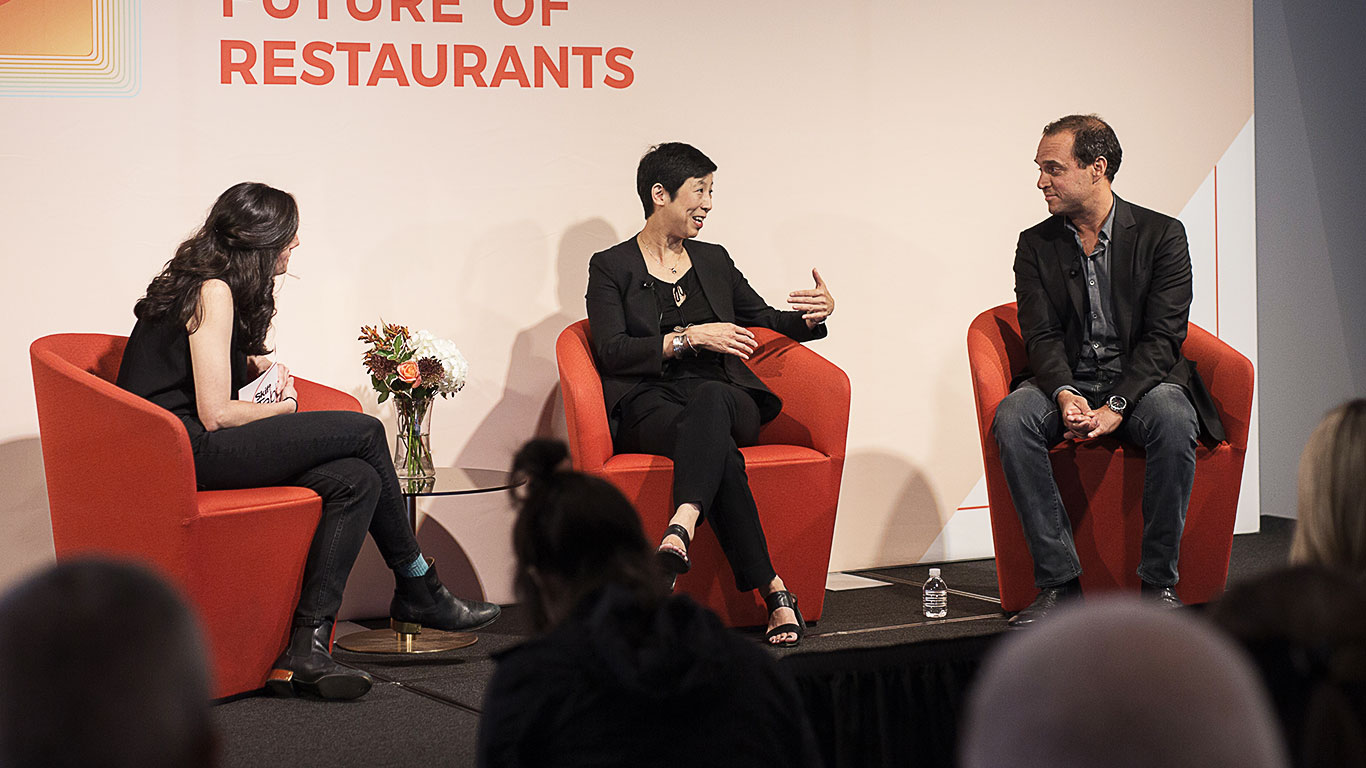The Best Ways to Create a Family Environment Among Restaurant Staff

Photo Credit: Ellen Yin, founder of High Street Hospitality Group, and Jeffrey Lefcourt, founder & CEO of Corner Table - The Smith, on stage at Skift Restaurants Forum. Skift Table / Dan Loh
Skift Take
Mentorship and support are vital for restaurants looking to develop their own talent from within. Authenticity and passion, though, can be hard to find in markets with competitive wages.


